Cybersecurity is a super in-demand and well-paid field with lots of job opportunities available. But I won’t spend too much time on that in this cybersecurity books post! To learn about what cybersecurity is, career opportunities, courses, etc., head to my Cybersecurity in 2021 post.
In this article, we’ll be covering 17 of the best cybersecurity books — whether you’re just starting out or want to brush up on cybersecurity concepts. We’ll cover ethical hacking books, website security books, malware books, Comptia A+ books, and other must-read books for cybersecurity.
17 Best Cybersecurity Books
Let’s dive into some of the best cybersecurity books on the market. While you won’t find any free cybersecurity books on the list, you’ll find that most of these cybersecurity books are in the $15-$30 range—a lot more affordable than your college textbooks!
Looking for a programming book instead? Here’s 54 of the best programming books to choose from.
Disclosure: I’m a proud affiliate for Amazon. As an Amazon Associate, I earn from qualifying purchases. Meaning if you buy a product through my links on this page, I may get a small commission for referring you. Thanks!
1. Software Security: Building Security In
Author: Gary McGraw
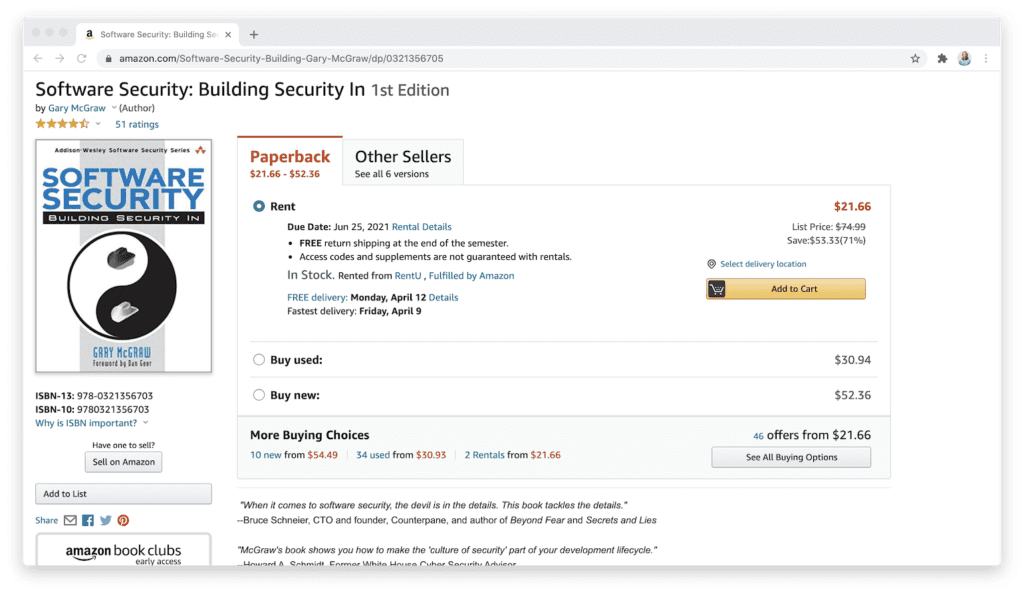
Teaches you how to put software security into practice. Includes detailed explanations of risk management frameworks and processes, code review using static analysis tools, penetration testing, security testing, abuse case development, and more.
2. Practical Malware Analysis: The Hands-On Guide to Dissecting Malicious Software
Author: Michael Sikorski
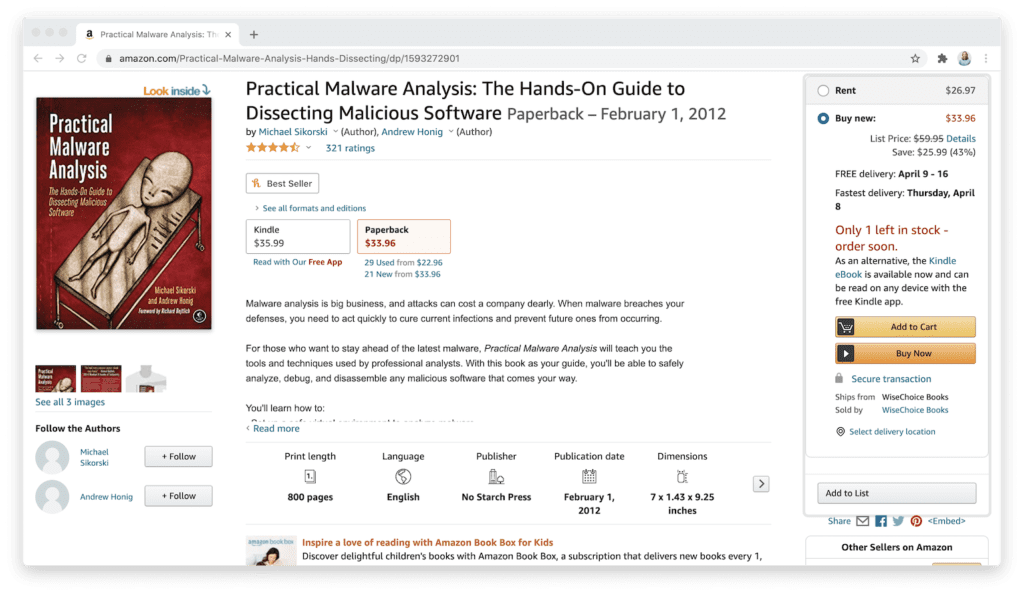
This awesome malware book teaches you the tools and techniques used by professional analysts to debug and disassemble malicious software. Includes hands-on labs to help you learn important concepts. Topics covered include: how to set up a safe virtual environment to analyze malware, how to overcome malware tricks like obfuscation and anti-disassembly, how to develop a methodology for unpacking malware, and much more.
3. Learn Ethical Hacking from Scratch: Your stepping stone to penetration testing
Author: Zaid Sabih
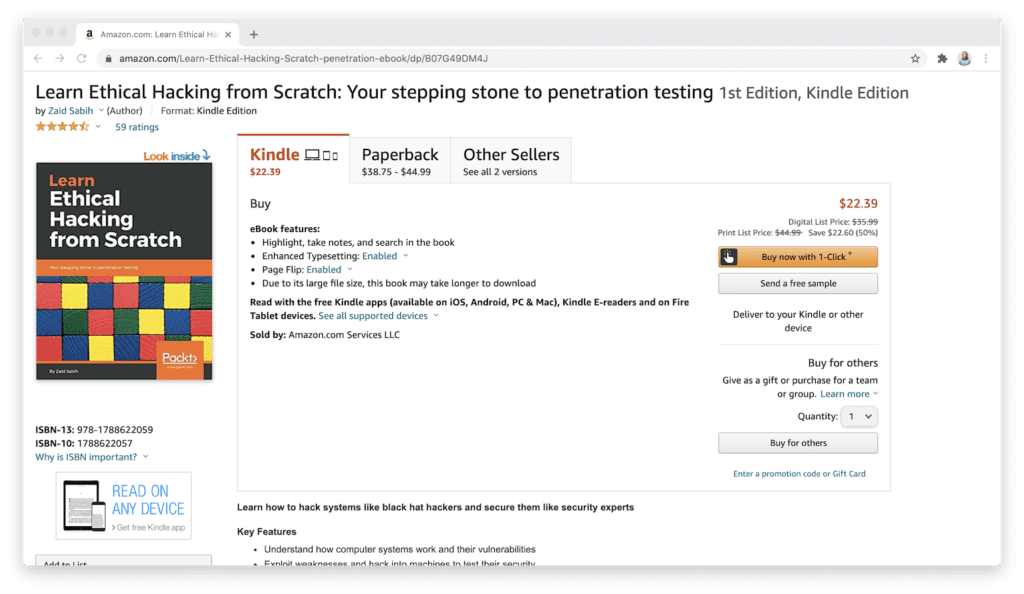
This ethical hacking book starts with the basics of ethical hacking, how to do it safely and legally through a penetration testing lab, and how to install the Linux terminal. Also covers network hacking, how to gain access to remote computer systems using client-side and server-side attacks, web application hacking techniques, XSS and SQL injections, and much more.
4. Alice and Bob Learn Application Security
Author: Tanya Janca
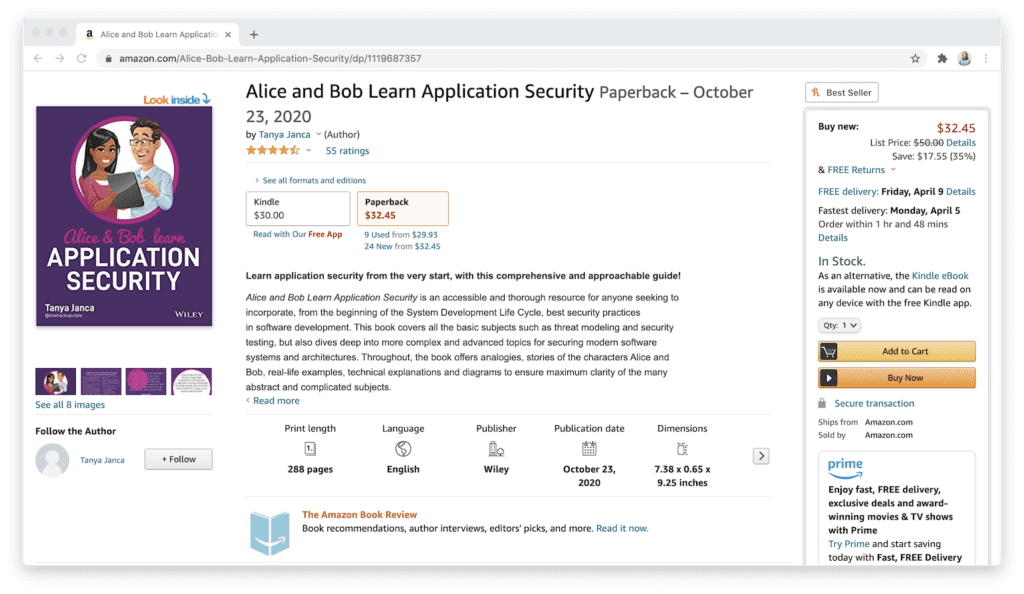
Covers application security concepts like threat modeling, security testing, and securing modern software systems and architectures. The cybersecurity book makes complicated subjects easier to understand by including stories of the characters Alice and Bob to illustrate concepts, incorporating real-life examples, and giving explanations and diagrams for technical topics.
5. CompTIA Security+ Guide to Network Security Fundamentals
Author: Mark Ciampa
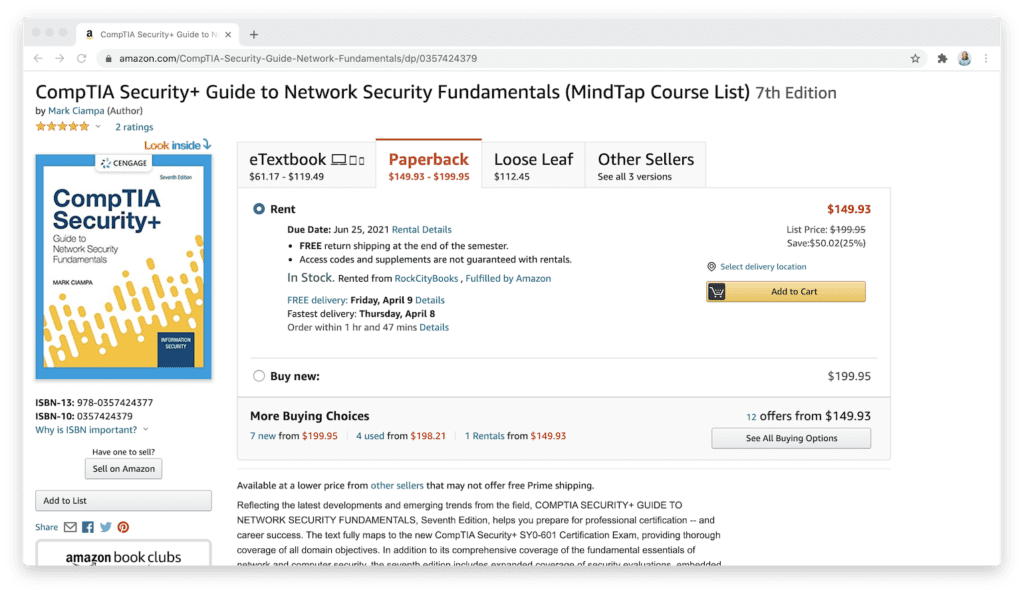
This Comptia book helps you prepare for the CompTIA Security+ SY0-601 Certification Exam. Covers the fundamentals of network and computer security, embedded device and Internet of Things (IoT) security, and cloud and virtualization security. Includes practical, hands-on projects, case activities and online virtual labs to help you learn. Recently updated on December 16, 2020.
6. Web Application Security: Exploitation and Countermeasures for Modern Web Applications
Author: Andrew Hoffman
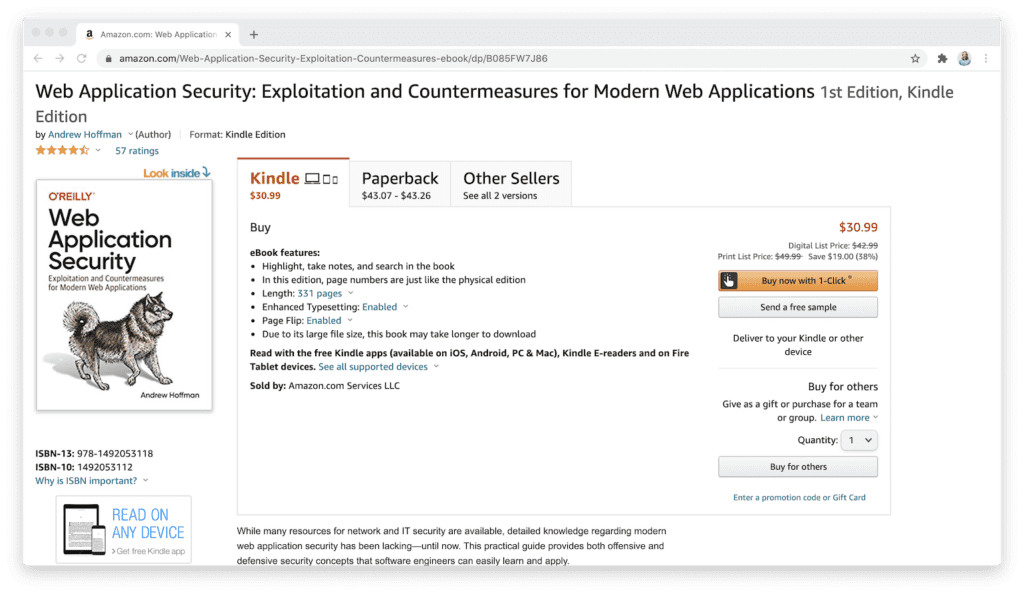
This software security book was written by a senior security engineer at Salesforce. It gives an intro to three pillars of web application security: recon, offense, and defense. You’ll learn how to break into web applications using the latest hacking techniques from hackers and bug bounty hunters, how to develop mitigations for use in your own web applications to protect against hackers, and secure coding best practices.
7. Cybersecurity For Dummies
Author: Joseph Steinberg
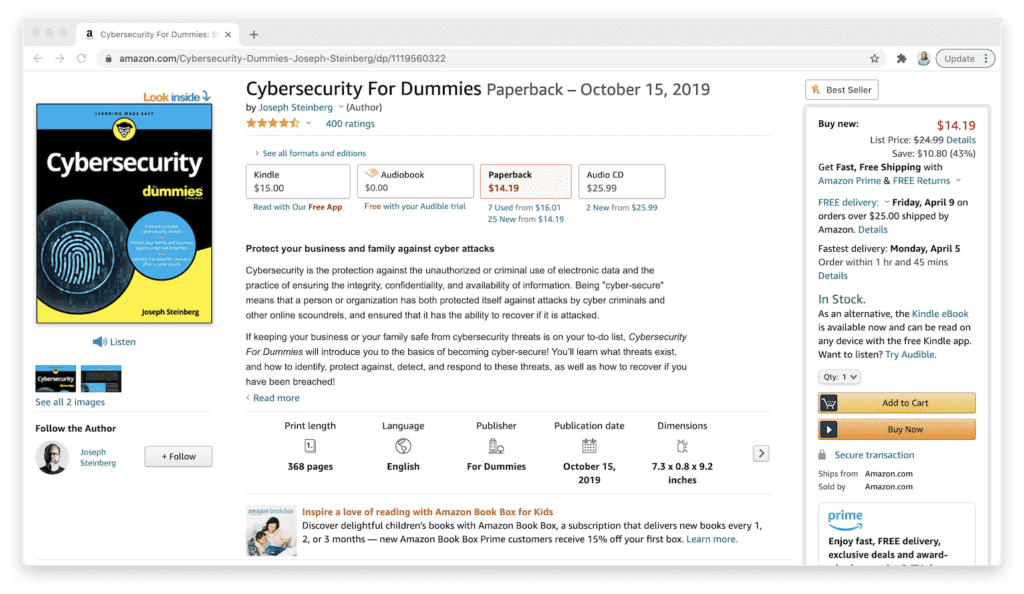
The classic “For Dummies” line is great for beginners, and this one introduces you to the basics of becoming cyber-secure. You’ll learn about various threats that exist and how to identify, detect, and protect against these threats, including how to recover if you’ve been breached. Also covers cybersecurity careers.
8. Cybersecurity: The Beginner’s Guide: A comprehensive guide to getting started in cybersecurity
Author: Dr. Erdal Ozkaya
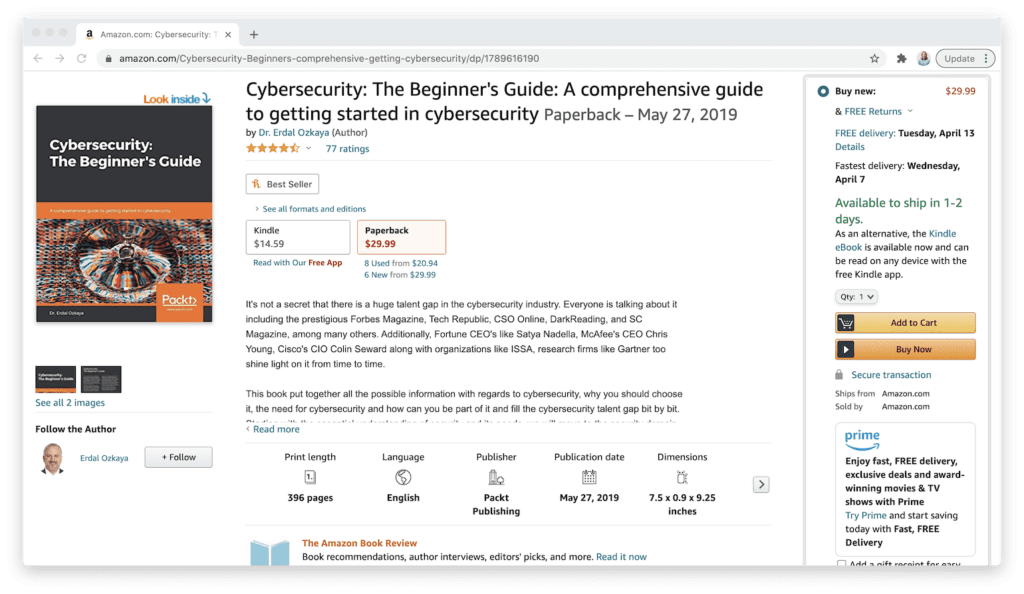
This book covers the fundamentals of cybersecurity, how artificial intelligence and machine learning are helping to secure systems, the skills and tools you need to know to work in cybersecurity, and how to think like an attacker. Also dives into how to build practice labs, real-world use cases, and the various cybersecurity certifications that are available.
9. Hackable: How to Do Application Security Right
Author: Ted Harrington
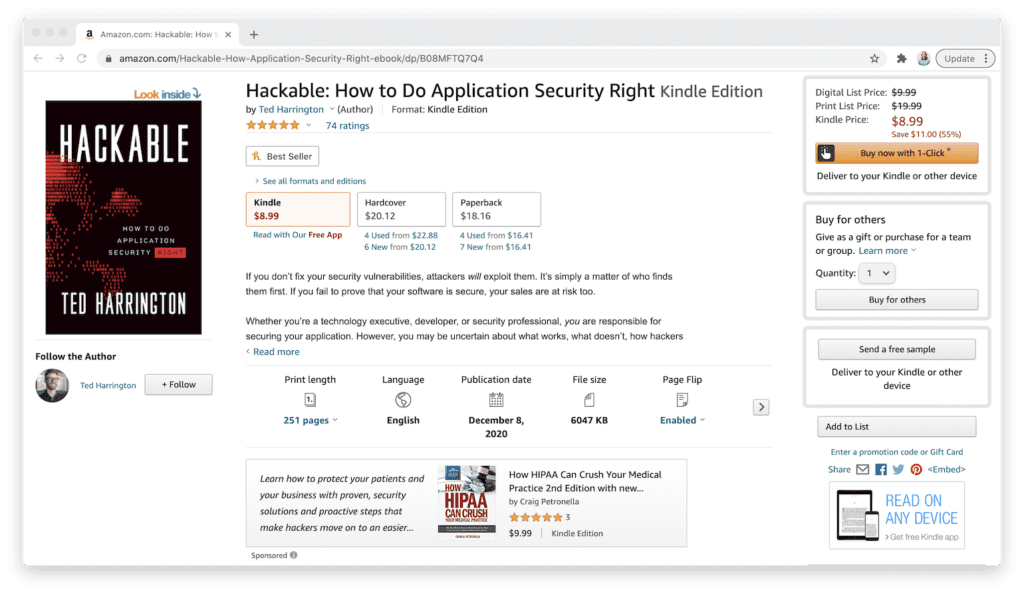
In this book, you’ll learn how to eradicate security vulnerabilities, establish a threat model, and build security into the development process to help you build better, more secure products. It also touches on how to turn security into a competitive advantage.
10. 24 Deadly Sins of Software Security: Programming Flaws and How to Fix Them
Author: Michael Howard
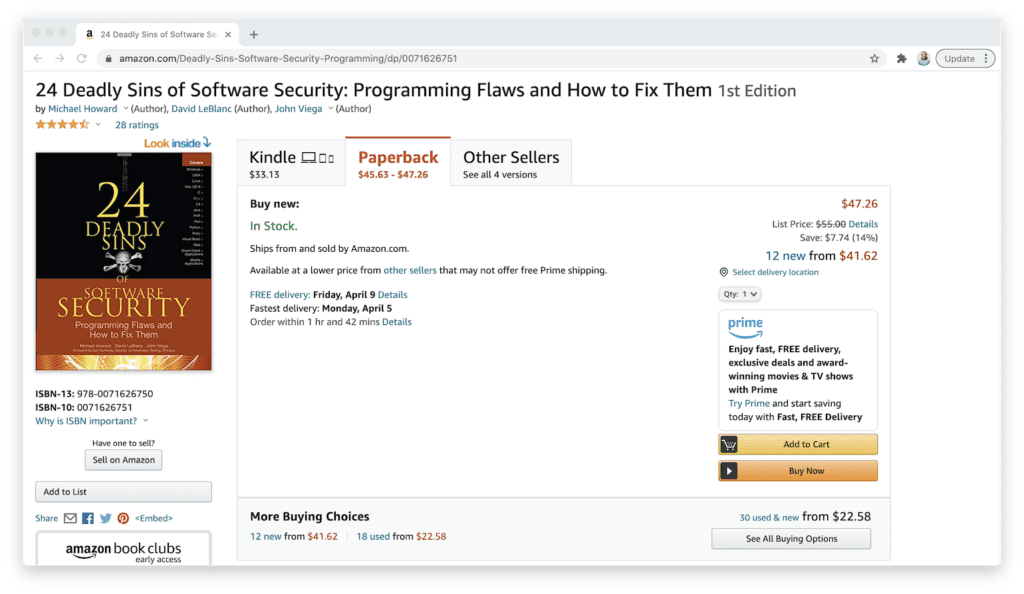
Reveals the 24 most common design and coding errors and explains how to fix each one (or avoid them from the start). Covers how to eliminate security flaws from your code, such as SQL injection, web server- and client-related vulnerabilities, use of magic URLs, predictable cookies, and hidden form fields, buffer overruns, format string problems, and more.
11. The Pentester BluePrint: Starting a Career as an Ethical Hacker
Author: Phillip L. Wylie
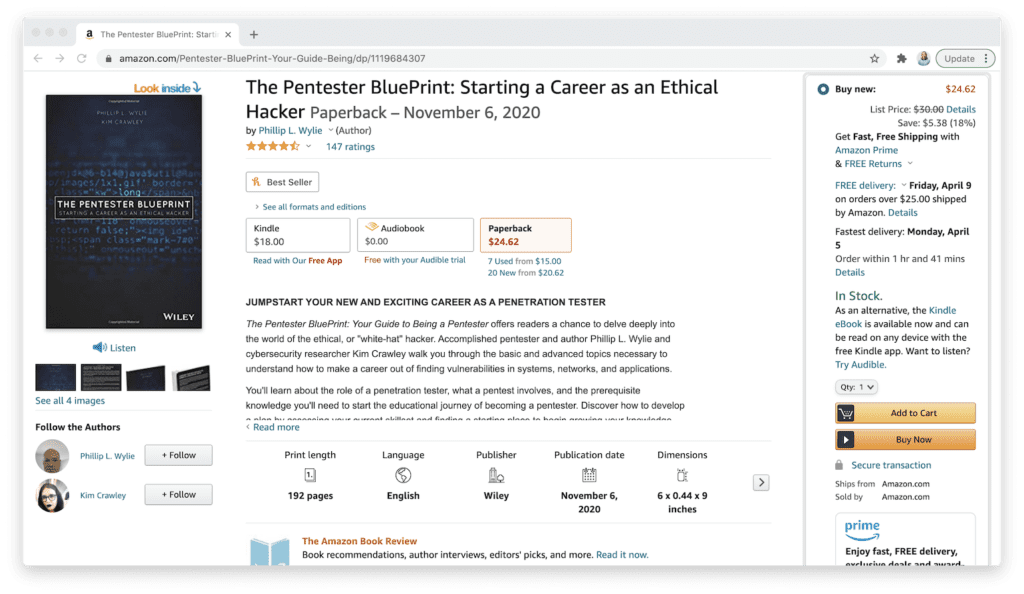
This ethical hacking book walks you through how to make a career out of finding vulnerabilities in systems, networks, and applications. You’ll learn about the role of a penetration tester, the skills you need to know, and concrete advice on how to become employed as one. Best for IT workers and entry-level information security professionals.
12. Cybersecurity – Attack and Defense Strategies
Authors: Yuri Diogenes, Erdal Ozkaya
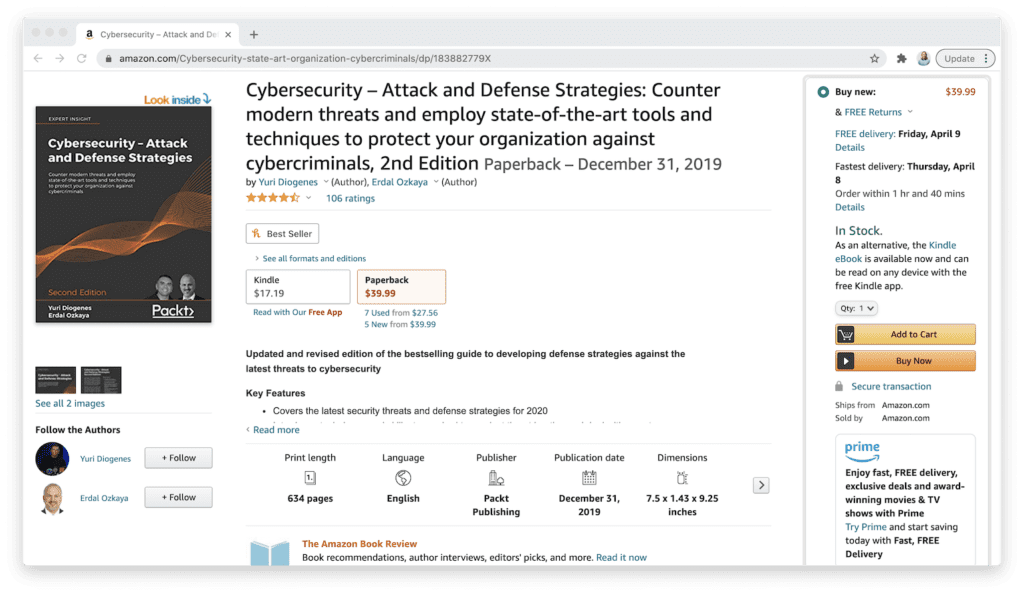
A guide to developing defense strategies against the latest threats to cybersecurity. Takes you into the mindset of a Threat Actor to help you better understand the motivation and the steps of performing an actual cyber attack. Also covers how to identify different types of cyberattacks, how to perform log analysis using the cloud to identify suspicious activities, the cyber security kill chain, and more.
13. The Smartest Person in the Room: The Root Cause and New Solution for Cybersecurity
Author: Christian Espinosa

Instead of delving into the technical aspects of cybersecurity, this cybersecurity book covers how to develop people skills in the field, including the importance of having emotional intelligence.
14. Cybersecurity Essentials
Author: Charles J. Brooks
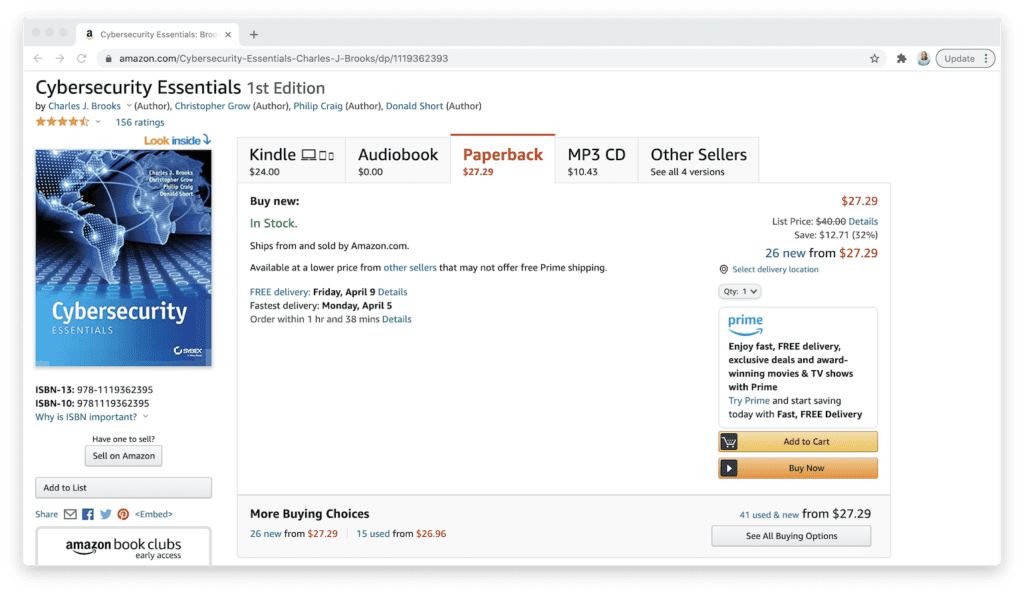
Provides a comprehensive introduction to the cybersecurity field. Covers essential topics required for entry-level cybersecurity certifications, including these four distinct challenges: securing the infrastructure, securing devices, securing local networks, and securing the perimeter. Includes summaries of key concepts, review questions, and hands-on exercises.
15. The Art of Memory Forensics: Detecting Malware and Threats in Windows, Linux, and Mac Memory
Authors: Michael Hale Ligh, Andrew Case, Aaron Walters
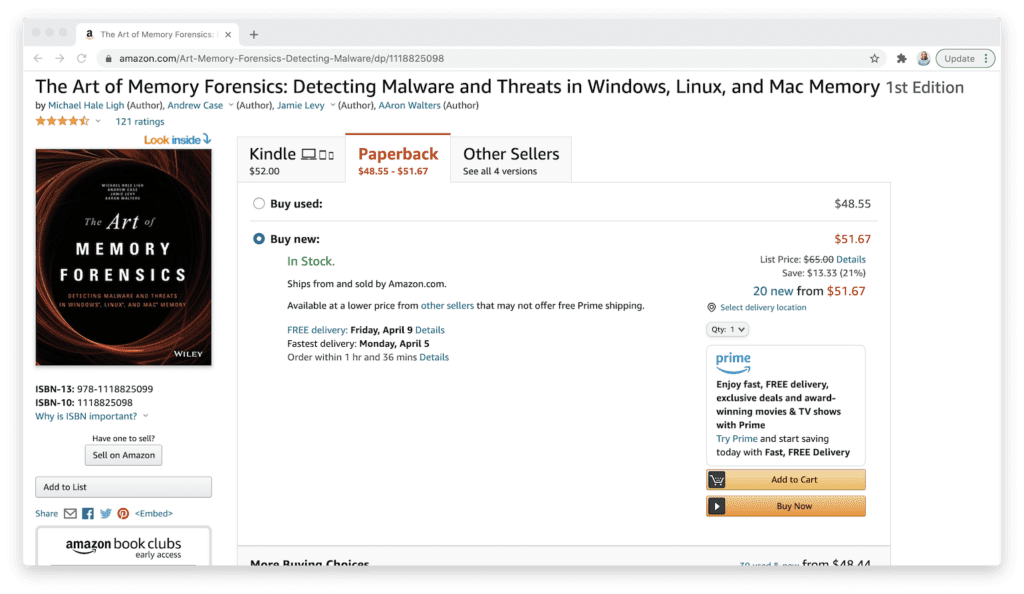
Memory forensics is the art of analyzing computer memory (RAM) to solve digital crimes. This malware book focuses on performing memory forensics for Windows, Linux, and Mac systems, including x64 architectures. The companion website provides exercises for each chapter.
16. Effective Cybersecurity: A Guide to Using Best Practices and Standards
Author: William Stallings
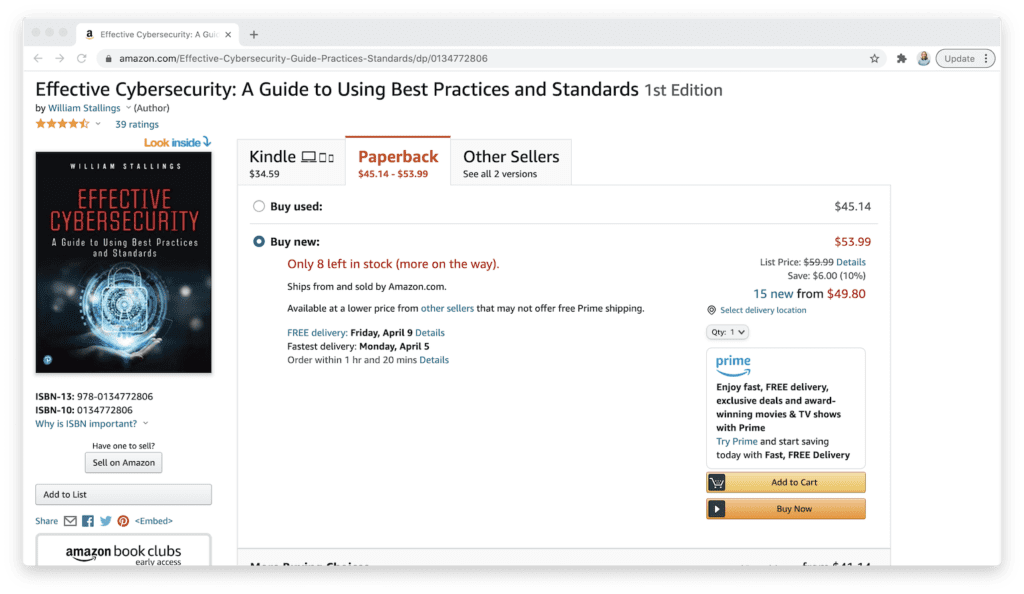
Comprehensive explanations of best practices and standards for implementing cybersecurity. The cybersecurity book covers security planning, security management, and security evaluation. Includes clear learning objectives, keyword lists, and glossaries of QR codes linking to relevant standards documents and web resources. Note: Requires a basic understanding of cryptographic terminology and applications.
17. Cybersecurity for Beginners
Author: Raef Meeuwisse
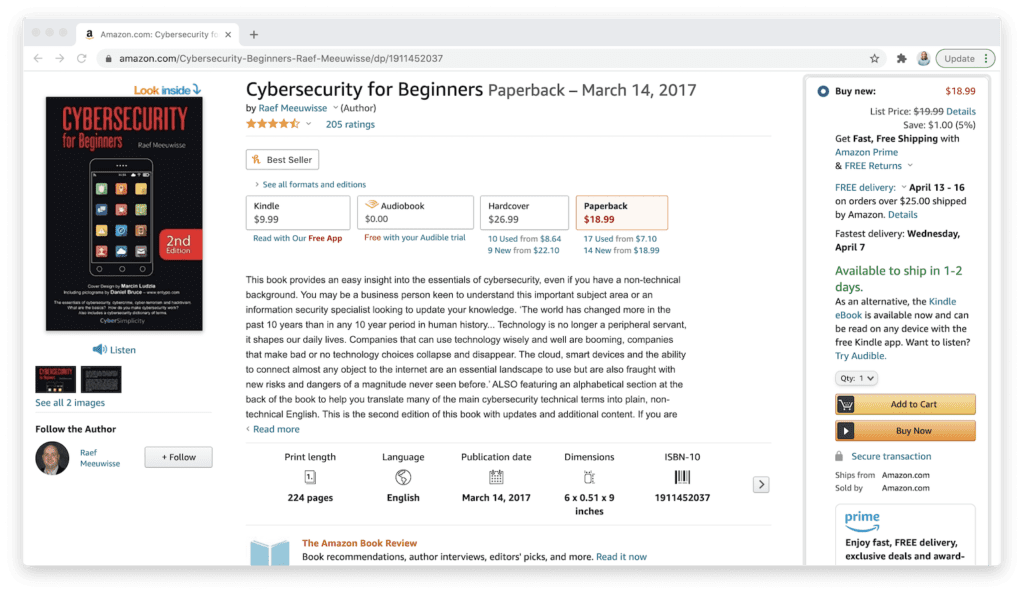
Great intro book to the essentials of cybersecurity. It’s a good place to start for those with a non-technical background, as it features a glossary that helps translate cybersecurity terms into plain English.
Time to Build In-Demand Skills with Cybersecurity Books
With the help of the best cybersecurity books on the market, you can either kickstart a career in cybersecurity or develop skills that can give you a competitive advantage in almost any field. Even if you’re just reading cybersecurity books to beef up your own computer security skills, more knowledge is never a bad thing.
Want to learn more? Check out this post on how to pursue a career in cybersecurity, plus resources and courses to kick your skills up a notch.
Note: This article contains Amazon affiliate links. As an Amazon Associate, I earn from qualifying purchases.

